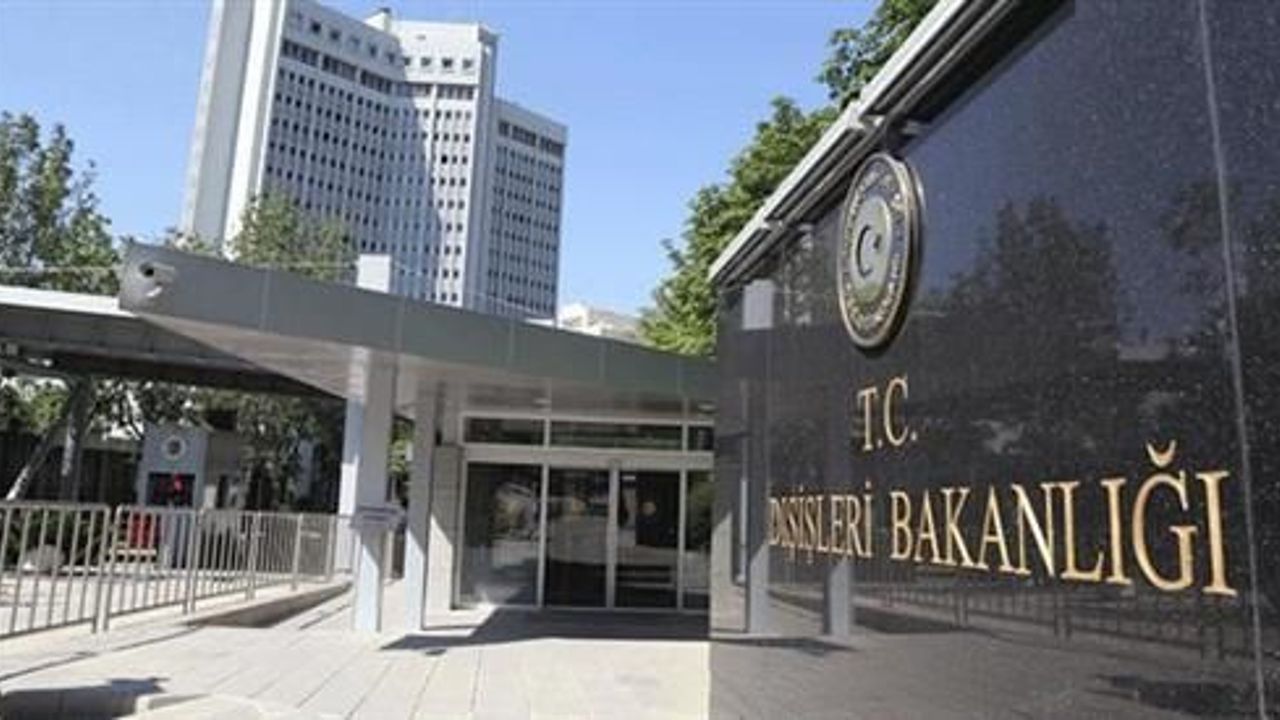Turkey expresses 'Ramadan ban' concerns to China embassy
Politics |
Turkey's Foreign Ministry 'deeply concerned' over reports China banned Ramadan for Party members, including civil servants, students, teachers

Font Size:
Turkey's Foreign Ministry says it has expressed "deep concern" to China about reports that the country has instilled a fasting ban on segments of its Uighur Muslim population.
In a statement released Tuesday the ministry said that it had informed the Chinese ambassador to Ankara of its worries.
"It has been publicly heard with sorrow that there are reports of the fasting and fulfilling of religious duties by Uighur Turks being banned," the statement said.
The statement offered no explanation as to what it wanted China to do about the reported ban.
Presidential Spokesperson Ibrahim Kalin later told reporters that the goverment had been left concerned by reports of "the imposition of fasting restrictions during the Holy Month of Ramadan and the punishment of those who fast."
"Within this scope, our foreign ministry invited the Chinese envoy to Ankara this morning and expressed our concerns about the issue."
The expression is reflective of the sentiment that many Turks have with regard to the Uighur issue.
A photo posted June 28 to a Facebook account dated named "Dogu Turkistan İcin" (For East Turkestan) shows a group of Turkish nationalists gathered outside a Chinese restaurant in Istanbul daubed with graffiti.
A caption underneath reads "Today, Grey wolves [Turkish nationalists] who took to the streets in Istanbul for East Turkestan, scattered a Chinese Restaurant and painted the restaurant sky blue."
Sympathisers have called for Marches July 4 and 5 in Istanbul to protest China's alleged religious restrictions.
Many Turks refer to Chinas Xinjiang Uyghur Autonomous Region - the home to many ethnic minority groups, including the Turkic Uighur people - as East Turkestan.
They believe that Uighur are among a number of Turkic tribes that inhabit the region, and consider it to be part of Central Asia, not China.
In mid-June it was widely reported that China has banned Ramadan in parts of Xinjiang Uyghur Autonomous Region for Party members, civil servants, students and teachers.
In 2014, the government issued warnings to employees and students not to fast during the holy month.
It is also reported to have restricted men from having long beards, clamped down on religious education activities, and acted to control the entrances and exits to mosques.
In January 2015, the ban was extended to wearing burqas in public places.
Uighur, a Turkic group that makes up around 45 percent of the population of Xinjiang, has accused China of carrying out repressive policies that restrain their religious, commercial and cultural activities.
Anadolu Agency
In a statement released Tuesday the ministry said that it had informed the Chinese ambassador to Ankara of its worries.
"It has been publicly heard with sorrow that there are reports of the fasting and fulfilling of religious duties by Uighur Turks being banned," the statement said.
The statement offered no explanation as to what it wanted China to do about the reported ban.
Presidential Spokesperson Ibrahim Kalin later told reporters that the goverment had been left concerned by reports of "the imposition of fasting restrictions during the Holy Month of Ramadan and the punishment of those who fast."
"Within this scope, our foreign ministry invited the Chinese envoy to Ankara this morning and expressed our concerns about the issue."
The expression is reflective of the sentiment that many Turks have with regard to the Uighur issue.
A photo posted June 28 to a Facebook account dated named "Dogu Turkistan İcin" (For East Turkestan) shows a group of Turkish nationalists gathered outside a Chinese restaurant in Istanbul daubed with graffiti.
A caption underneath reads "Today, Grey wolves [Turkish nationalists] who took to the streets in Istanbul for East Turkestan, scattered a Chinese Restaurant and painted the restaurant sky blue."
Sympathisers have called for Marches July 4 and 5 in Istanbul to protest China's alleged religious restrictions.
Many Turks refer to Chinas Xinjiang Uyghur Autonomous Region - the home to many ethnic minority groups, including the Turkic Uighur people - as East Turkestan.
They believe that Uighur are among a number of Turkic tribes that inhabit the region, and consider it to be part of Central Asia, not China.
In mid-June it was widely reported that China has banned Ramadan in parts of Xinjiang Uyghur Autonomous Region for Party members, civil servants, students and teachers.
In 2014, the government issued warnings to employees and students not to fast during the holy month.
It is also reported to have restricted men from having long beards, clamped down on religious education activities, and acted to control the entrances and exits to mosques.
In January 2015, the ban was extended to wearing burqas in public places.
Uighur, a Turkic group that makes up around 45 percent of the population of Xinjiang, has accused China of carrying out repressive policies that restrain their religious, commercial and cultural activities.
Anadolu Agency
Similar News
Video News

WORLD
26 Mart 2024 - 11:18
Photo News






